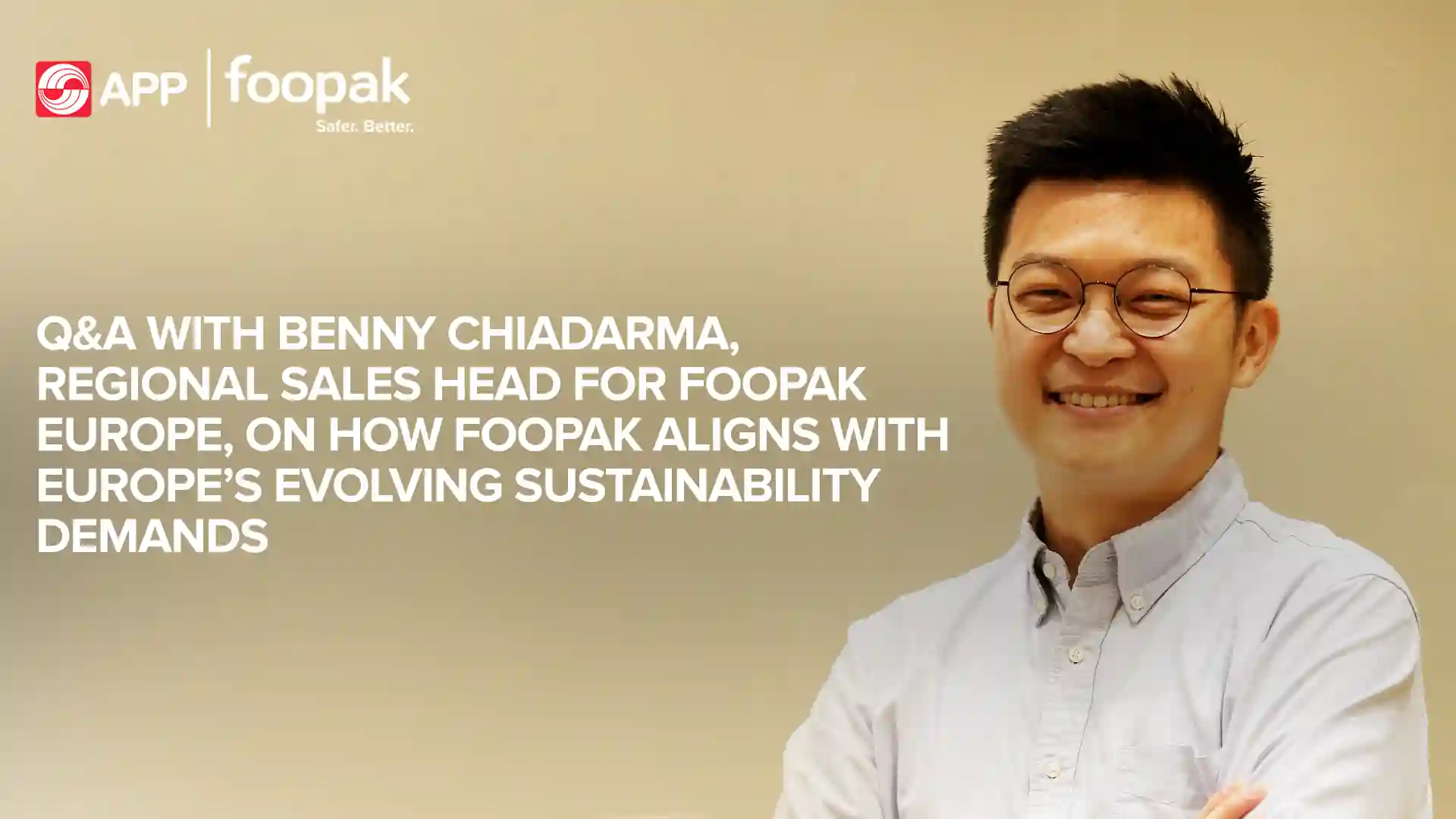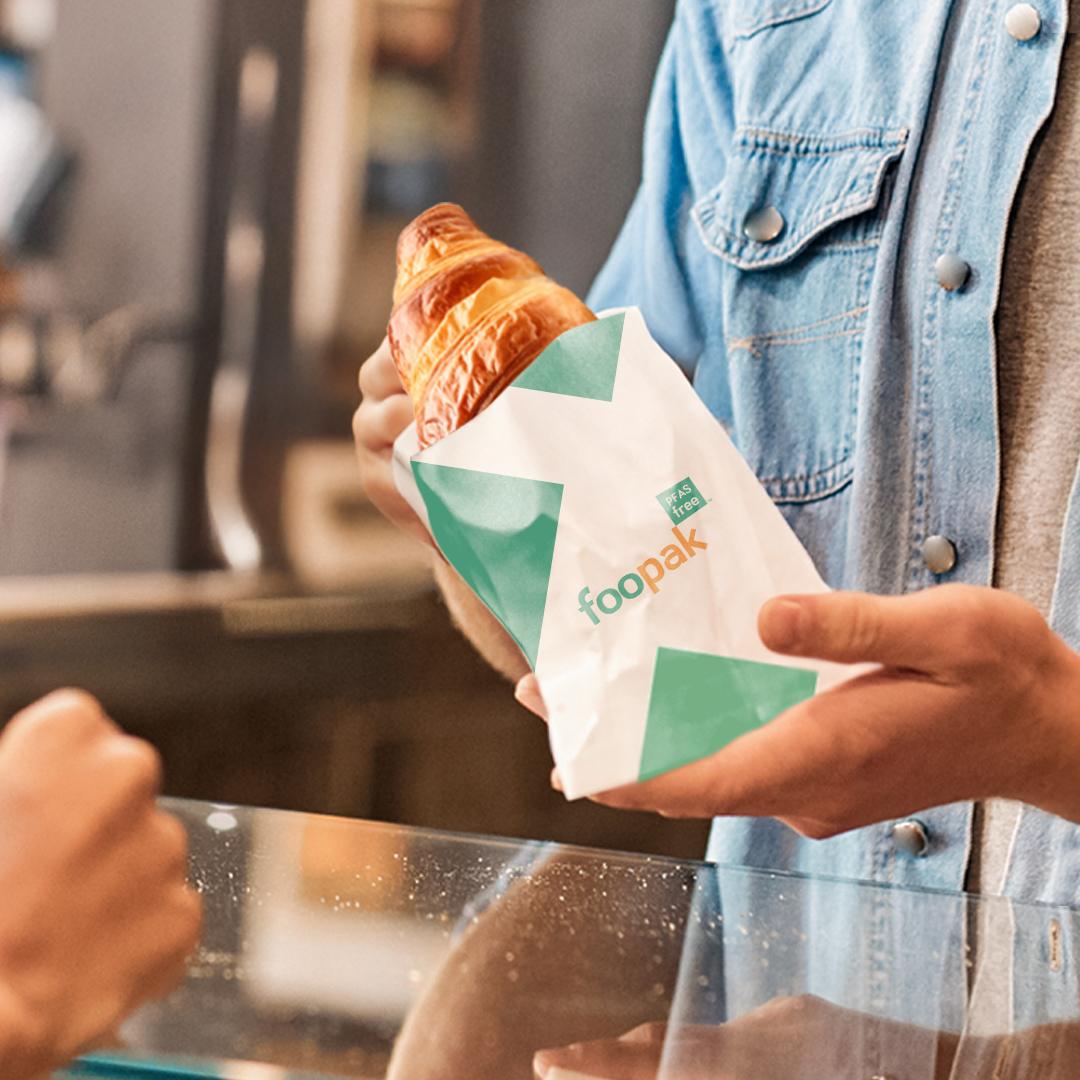Meet Benny Chiadarma
Benny Chiadarma is the Regional Sales Head for Foopak Europe, overseeing the brand’s commercial operations and strategic expansion across European markets. He was appointed to the role following years of experience in sustainable packaging, product management, and international sales.
Prior to his current position, Mr. Chiadarma led Foopak’s product strategy and development team, where he played a key role in shaping the company’s sustainability agenda, launching biodegradable solutions, and supporting the achievement of several international green certifications. His leadership contributed significantly to the strengthening of Foopak’s brand identity as a forward-thinking player in the paperboard packaging industry.
Based in Foopak’s headquarters in Jakarta, Mr. Chiadarma leads European sales and works closely with distributor networks and regional sales teams across the continent. He holds a strong belief in practical innovation and long-term partnerships, and continues to advance Foopak’s mission by adapting sales and branding strategies to evolving consumer demands and regulatory landscapes.
Q: What does the European market really expect from sustainable packaging today?
“The European market is dynamic and regulation-driven. Each country has its own set of rules. France, for example, enforces strict requirements that differ from Germany or Denmark. What makes Europe particularly challenging is how frequently the standards evolve. At Foopak, we don’t wait until regulations are in place. We anticipate them.”
Q: What are the most common challenges or misconceptions you encounter when introducing sustainable paperboard in Europe – from regulators, converters, or brand owners?
“One of the biggest is underestimating how strict and detailed the requirements are. Beyond food safety, brands now expect ESG-level compliance. That includes labor welfare, traceability, and waste treatment.
We often get detailed forms from customers asking us to declare which chemicals we avoid, what social programs we support, and how we treat employees. Some even send auditors directly to our factories. That level of scrutiny isn’t rare; it’s becoming the norm.”
Q: Can you share how Foopak’s R&D or innovation efforts play a role in meeting these expectations?
“European customers demand more than just performance; they need proof. Especially for direct food contact materials, certifications are essential, from ISO 22000 to EC 1935/2004. When we developed Foopak Bio Natura, we didn’t just check a few boxes. We tested for recyclability, compostability (both industrial and home), and plastic-free status.
PFAS is a good example. Initially, regulations banned only a handful of PFAS substances. Now, hundreds are restricted. We proactively tested Foopak Bio Natura for Total Organic Fluorine long before clients asked, because we saw how urgently the issue was growing in the US and Denmark.”
Q: How do product certifications or awards influence your product development strategy?
They’ve been significant. Certifications aren’t just for marketing; they give structure and validation to our R&D process. For Foopak Bio Natura, getting third-party verification for compostability, food safety, and plastic-free status pushed us to improve our formula and process. It also gives customers confidence that we’re not just making claims, but delivering proof.
Q: With many brands now claiming to be sustainable, what makes Foopak Bio Natura stand out for food and beverage applications?
While we can’t disclose specific brand names, several leading foodservice companies across Europe, including in fast food, airline catering, and retail, have made the switch to Foopak Bio Natura. These transitions weren’t always seamless. Some clients initially struggled with formability, heat resistance, or aligning our board with their existing equipment.
What made the difference was our hands-on technical support. Instead of offering one-size-fits-all solutions, we collaborated closely to adapt our material to their exact requirements. That level of partnership has been key in not just delivering sustainable packaging, but making sure it performs reliably in real-world applications.
Q: How did your experience as a Product Manager shape the development of Foopak Bio Natura and other sustainable products?
Being a Product Manager trained me to balance what the market wants with what’s technically feasible. I’ve always believed that product development isn’t just about specs, it’s about solving real problems for customers. That mindset helped shape Foopak Bio Natura into what it is today: not just a sustainable material, but one that actually works on converters’ machines and meets regulatory demands.
Q: How does Foopak balance market demand, sustainability, and innovation?
It’s a constant juggling act. Our R&D team works hard to meet current customer needs while also preparing for future regulations. We know Foopak Bio Natura isn’t perfect. It doesn’t yet replace plastic in high-moisture products like milk cartons, but it works well for cups, trays, and lunch boxes.
Our long-term goal is to replace more PE-coated products with a next-gen version of Foopak Bio Natura. We’re launching a new machine in West Java next year that will enable a tenfold increase in production capacity, allowing us to meet growing demand while improving performance. As more regions, including the US, Latin America, and Asia, move toward plastic reduction, these innovations will become even more important.
Q: Looking ahead, how do you see the landscape of sustainable food packaging evolving in Europe, and how is Foopak positioning itself to lead (or adapt) in that future?
It’s only going to get tougher. Greenwashing is under the spotlight, and genuine sustainability claims need to be backed by evidence.
We’re also active in exhibitions and involved with local packaging associations, which gives us early visibility into shifting requirements.
One important thing to note is that the momentum behind packaging changes in Europe is coming more from regulation than from consumer demand. That means companies like ours need to stay agile and ahead of policy developments.
Our investment in new manufacturing tech will allow us to scale up capacity and speed. That’s critical, because regulatory timelines are tightening, and Foopak intends to stay ahead, not just keep up.

